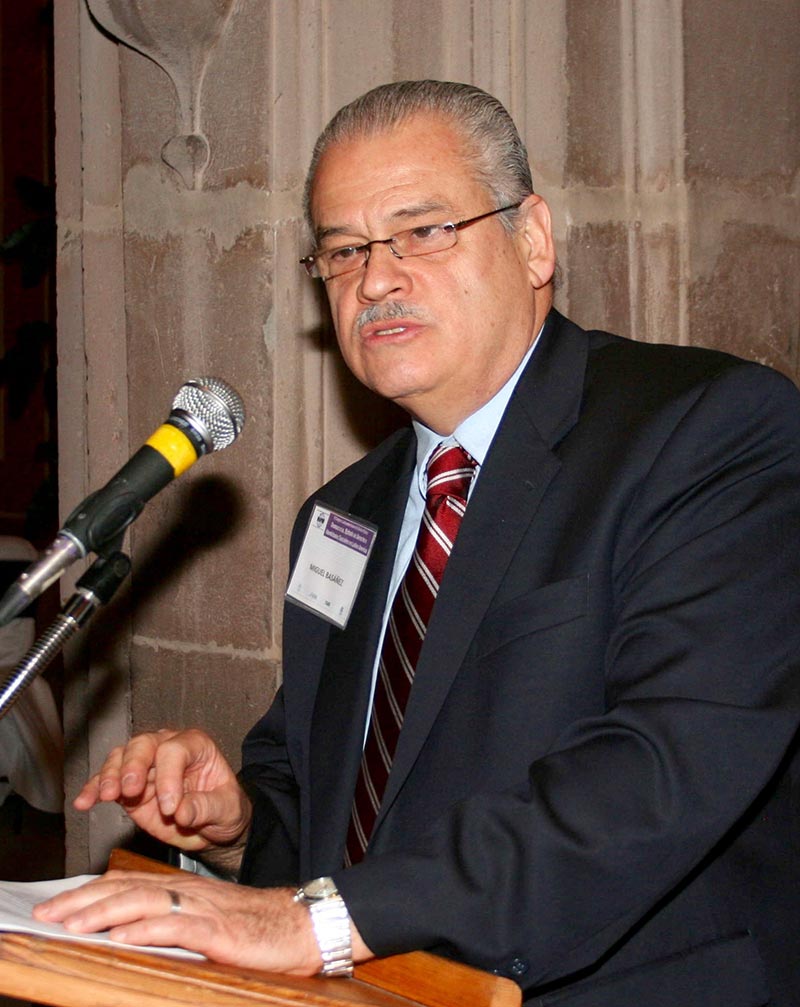Former WAPOR President is Ambassador to U.S.
[vc_row][vc_column][vc_column_text] The first WAPOR event I ever attended was in Mexico City in 1990. Hosted at El Colegio de México, the conference brought international public opinion researchers to discuss opinion polls in a setting that featured an emerging polling profession in a rapidly changing country. The organizer, Miguel Basáñez, was one of the publicly recognized pollsters and, as such, he was a central part of the early education and controversy around survey methodologies and the public role of opinion polls in Mexico. The ideas discussed at the time have influenced the way many journalists, intellectuals, and public officials tend to see opinion polls and the practice of polling until today.
The first WAPOR event I ever attended was in Mexico City in 1990. Hosted at El Colegio de México, the conference brought international public opinion researchers to discuss opinion polls in a setting that featured an emerging polling profession in a rapidly changing country. The organizer, Miguel Basáñez, was one of the publicly recognized pollsters and, as such, he was a central part of the early education and controversy around survey methodologies and the public role of opinion polls in Mexico. The ideas discussed at the time have influenced the way many journalists, intellectuals, and public officials tend to see opinion polls and the practice of polling until today.
Basáñez was convinced about the power and influence of opinion polls, and how public opinion articulated through those instruments could be an agent of change. He was also convinced about the need to train new generations of pubic opinion researchers. In 1989, only a year before the first WAPOR conference in Mexico City, Basáñez opened the first course on public opinion research at the Instituto Tecnológico Autónomo de México, ITAM, where he taught survey methods and introduced students to different theories of mass opinion, including Elisabeth Noelle-Neumann’s Spiral of Silence Theory, which he was very fond of. Basáñez conducted numerous experiments and tested hypotheses based on the idea that Mexicans would not easily provide sincere responses to interviewers. His logic was that Mexicans tended to keep their opinions to themselves in a political context of one dominant party. He even suggested, as others also did, that true opinions are hard to measure in an authoritarian political culture. He compared how survey responses differed when given in the interviewers’ households and when given in the anonimity of interviews conducted in the street, with no easy identification. I was one of his students in that first course and I benefited enormously from conducting such experiments. But most importantly, we witnessed the power of asking people questions, and the effects of their responses once their where tabulated and published.
Survey methodologies had a strong political side, as they were used as rethorical weapons in the political controversies that began around polling in the 1988 presidential election, and in the subsequent “war of polls” that took place in 1990. In that year, a series of polls about voting intentions for local elections in the State of Mexico were published, and their differences in results unleashed a harsh public discussion about polls and their methodologies. A more detailed description of this “war” and its implications on Mexican polling deserves a larger space, but it may suffice to say that Basáñez’ role was very influential then and continues to be today.
Basáñez served as WAPOR President for the 1999-2000 period and he has been associated to various academic international surveys, including the World Values Survey. A few years ago, he joined the Fletcher School faculty at Tufts University, where he further developed studies on values and political culture that attracted him at least since the 1980s, when he conducted surveys while serving in various government positions.
This year, Miguel Basáñez was nominated by President Enrique Peña Nieto as Mexico’s Ambassador to the United States. The Mexican Senate confirmed the nomination taking a vote on September 2: 98 in favor and 3 against. Basáñez presented his credentials to President Obama at the White House in mid September. His WAPOR friends and colleagues would like to wish him and Tatiana, his wife, all the best in their new responsibilities.
Contributed by Alejandro Moreno[/vc_column_text][/vc_column][/vc_row]


